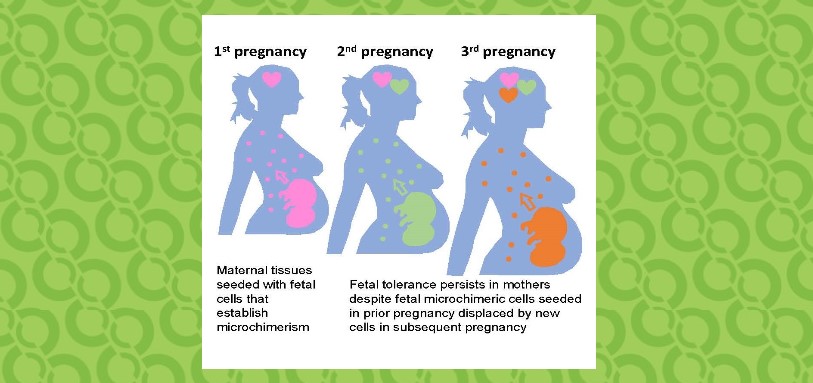‘Eat, Sleep, Console’ Approach Slashes ICU Stays for Opioid-Exposed Newborns
Research By: Stephanie Merhar, MD, MS
Post Date: May 1, 2023 | Publish Date: April 30, 2023

The “Eat, Sleep, Console” care approach (ESC) is more effective than usual care approaches for treating opioid-exposed infants, according to multi-center study results announced April 30, 2023, at the Pediatric Academic Societies annual meeting.
In fact, treating opioid-exposed newborns in neonatal intensive care units (NICUs) with this approach reduced their hospital lengths of stay from an average of 14.9 days to an average of 8.2 days. In addition, only 19.5% in the ESC group needed medications to treat opioid withdrawal compared to 52% among infants treated according to guidelines set by the more-commonly used Finnegan Neonatal Abstinence Scoring Tool (FNAST).
The findings, published concurrently in The New England Journal of Medicine, included Cincinnati Children’s neonatologist Stephanie Merhar, MD, MS, among the leading co-authors, as well as three Cincinnati Children’s Perinatal Institute partner hospitals: the University of Cincinnati Medical Center NICU, TriHealth’s Good Samaritan Hospital NICU, and the St. Elizabeth Healthcare NICU.
Combined, these hospitals contributed the largest number of subjects to the study, which was funded by the National Institutes of Health and coordinated by the ACT NOW Collaborative. Cincinnati Children’s world-class neonatologists provide medical care at all Level III NICUs in the Cincinnati/Northern Kentucky region.
“Ohio and Kentucky have been hit hard by the opioid epidemic,” says Merhar, who oversaw the regional participation in the study. “Understanding ways to improve the outcomes of babies and families affected by opioids is of particular importance to us, and ESC will help many babies in our region.”
Opioid-exposed newborns can develop symptoms of neonatal opioid withdrawal syndrome (NOWS), which includes tremors, excessive crying and irritability, and problems with sleeping and feeding.
Hospitals have widely different approaches for caring for these babies. They often use the Finnegan Neonatal Abstinence Scoring Tool (FNAST) to assess newborns with NOWS. The FNAST is an extensive scoring system that assesses signs of withdrawal in more than 20 areas. Concerns have been raised about its subjectivity and overestimation of the need for opioid medication.
The latest study involved more than 1,300 newborns treated at 26 hospitals across the US. The study found that the ESC care approach substantially decreased the time until infants were medically ready for discharge. Newborns cared for with ESC were medically ready for discharge approximately 6.7 days earlier and were 63% less likely to receive drug therapy, compared to newborns cared for under the FNAST approach. Safety outcomes at three months of age were similar between both groups.
The ESC care approach was developed about eight years ago but before this trial it hadn’t been rigorously evaluated in a large and diverse population of infants with NOWS.
ESC provides a function-based assessment of withdrawal severity centered around how well an infant can eat, sleep, and be consoled. The method prioritizes nonpharmacologic care, including increased family presence, holding, swaddling and rocking in low-stimulus environments, as first-line treatment.
A two-year follow-up study of a subset of the infants is ongoing.
Merhar and Jennifer Vannest, PhD, CCC-SLP, at Cincinnati Children’s also have received an $8 million research grant to further study the longer-term impacts of preterm opioid exposure.
About the Eat, Sleep, Console study
The trial is a collaborative effort between the NIH’s Eunice Kennedy Shriver National Institute of Child Health and Human Development (NICHD) and the NIH Environmental influences on Child Health Outcomes (ECHO) Program.
Cincinnati Children’s is part of the NICHD Neonatal Research Network (NRN), which partnered with the IDEA States Pediatric Clinical Trials Network to conduct this large study. Merhar was the NRN representative for this study and one of the lead investigators, along with Young and Devlin representing the ISPCTN.
The trial is funded by the Helping to End Addiction Long-term Initiative, or NIH HEAL Initiative®—a trans-agency effort to speed scientific solutions to stem the national opioid crisis.
Learn More
- View media coverage of this study at CNN and the Associated Press.
- View the full NIH announcement
- Learn more about treatment for neonatal abstinence syndrome (NAS) and neonatal opioid withdrawal syndrome (NOWS)
| Original title: | Eat, Sleep, Console Approach or Usual Care for Neonatal Opioid Withdrawal |
| Published in: | The New England Journal of Medicine |
| Publish date: | April 30, 2023 |
Research By

Merhar serves as attending neonatologist at the Perinatal Institute at Cincinnati Children’s. Her research focuses on how the newborn brain can bounce back from insults including brain injury and substance exposure.






